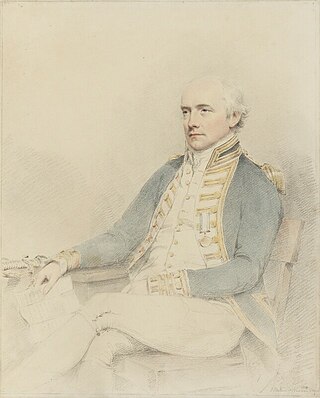Mars is a planet in the Solar System.
A pearl is a hard object produced by mollusks.
A thunderbolt is a symbolic representation of lightning when accompanied by a loud thunderclap.
A scorpion is a predatory arthropod animal.
Doctor or The Doctor may refer to:

In the rating system of the Royal Navy used to categorise sailing warships, a sixth-rate was the designation for small warships mounting between 20 and 28 carriage-mounted guns on a single deck, sometimes with smaller guns on the upper works and sometimes without. It thus encompassed ships with up to 30 guns in all. In the first half of the 18th century the main battery guns were 6-pounders, but by mid-century these were supplanted by 9-pounders. 28-gun sixth rates were classed as frigates, those smaller as 'post ships', indicating that they were still commanded by a full ('post') captain, as opposed to sloops of 18 guns and less under commanders.
A rose is a perennial plant of the genus Rosa, or the flower it bears.
Wizard, the wizard, or wizards may refer to:

Admiral of the Fleet James Gambier, 1st Baron Gambier, was a Royal Navy officer. After seeing action at the capture of Charleston during the American Revolutionary War, he saw action again, as captain of the third-rate HMS Defence, at the battle of the Glorious First of June in 1794, during the French Revolutionary Wars, gaining the distinction of commanding the first ship to break through the enemy line.
Capitan and Kapitan are equivalents of the English Captain in other European languages.
Jackal is a small animal in the wolf/dog family of mammals.
A unicorn is a legendary horse-like beast with a horn on its forehead.

Admiral Sir William Cornwallis, was a Royal Navy officer. He was the brother of Charles Cornwallis, 1st Marquess Cornwallis, British commander at the siege of Yorktown. Cornwallis took part in a number of decisive battles including the siege of Louisbourg in 1758, when he was 14, and the Battle of the Saintes but is best known as a friend of Lord Nelson and as the commander-in-chief of the Channel Fleet during the Napoleonic Wars. He is depicted in the Horatio Hornblower novel, Hornblower and the Hotspur.
A snake is an elongated, legless, predatory reptile.

Captain is the name most often given in English-speaking navies to the rank corresponding to command of the largest ships. The rank is equal to the army rank of colonel and air force rank of group captain.
Neptune is a planet in the Solar System.

Captain Robert Boyle-Walsingham was an Anglo-Irish Royal Navy officer and politician. He was killed in the Great Hurricane of 1780 while serving as a commodore onboard HMS Thunderer.
Captain is a title, an appellative for the commanding officer of a military unit; the supreme leader of a navy ship, merchant ship, aeroplane, spacecraft, or other vessel; or the commander of a port, fire or police department, election precinct, etc. In militaries, the captain is typically at the level of an officer commanding a company or battalion of infantry, a ship, or a battery of artillery, or another distinct unit. It can also be a rank of command in an air force. The term also may be used as an informal or honorary title for persons in similar commanding roles.
This page is based on this
Wikipedia article Text is available under the
CC BY-SA 4.0 license; additional terms may apply.
Images, videos and audio are available under their respective licenses.




